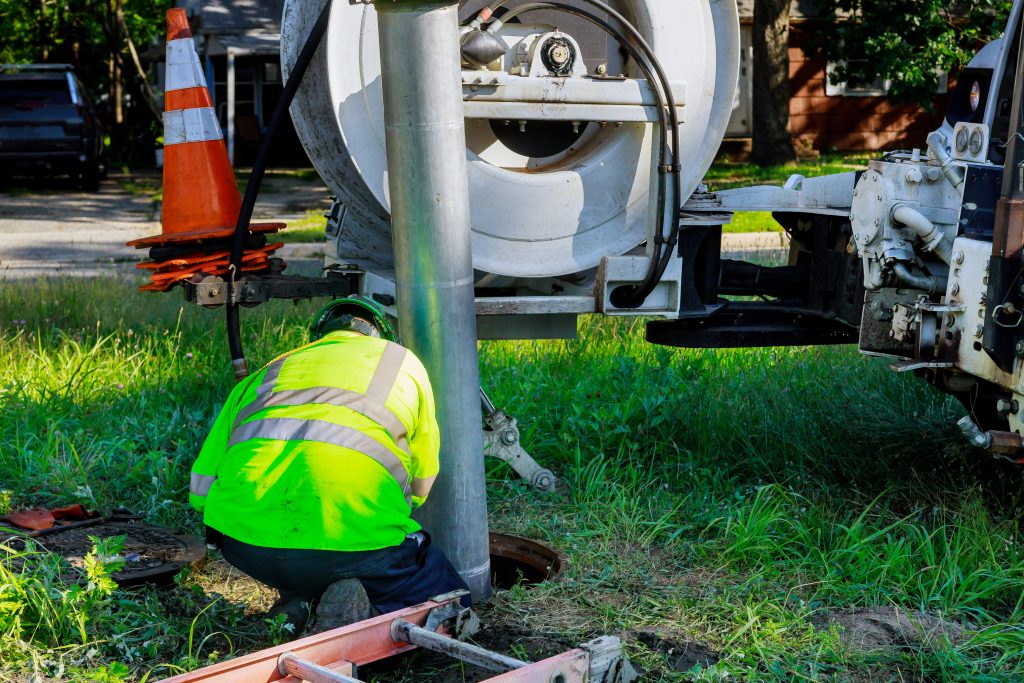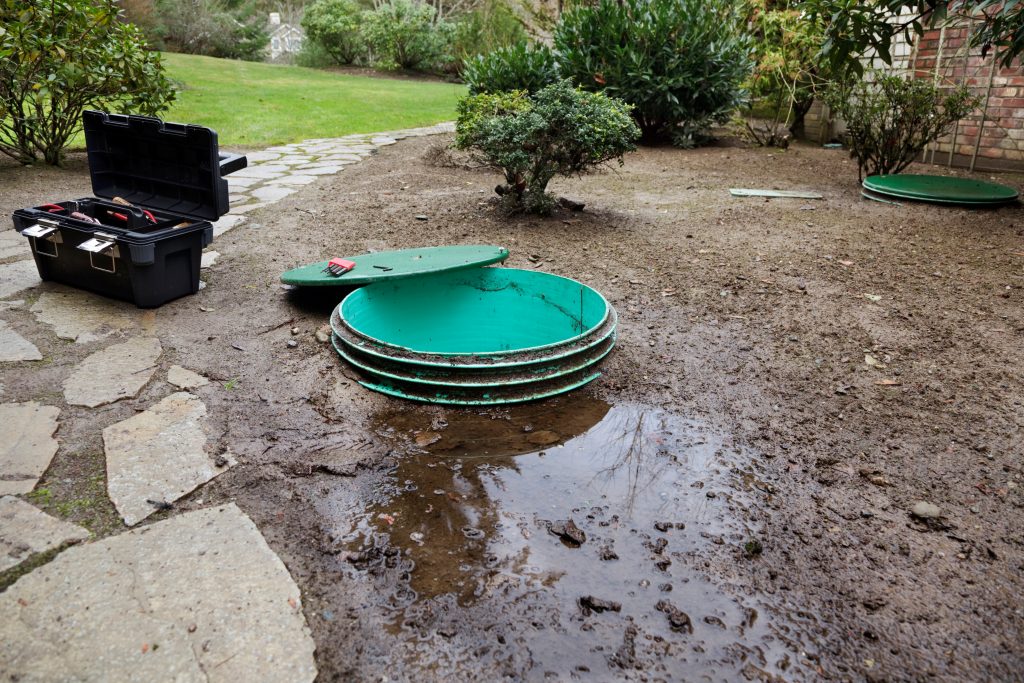Functions & Failures
Proper Septic System Maintenance

Your septic system is your responsibility, and there are several reasons you should inspect and maintain it. One big motivator is money – it costs much less to inspect and maintain your septic system compared to fixing or replacing it if it fails. Correct maintenance also protects your family’s health and the health of the environment. Private septic systems will not last forever and do require maintenance. The lifespan of a septic system depends a lot on how well it was installed and maintained, how much it is used, and how good the soil and surrounding drainage are.
The first thing you need to do to keep your septic system functioning properly is to monitor what goes into it. Ideally, only human wastewater will enter the septic tank. In moderation, a properly working septic tank can handle some biodegradable detergents, laundry soaps, kitchen wastes and biodegradable household chemicals. Things like cigarette butts, diapers, sanitary napkins, plastics, any other trash, or high levels of cleaning agents or chemicals create problems for your septic tank. Some things kill the good bacteria the septic tank needs to breakdown human waste. Other items do not readily decompose and more importantly, may clog the baffles and prevent proper fluid flow inside the septic tank.
Pumping your septic tank is another one of the best and least inexpensive means in which to maintain your septic system. Most septic tanks should be pumped every 3-5 years. Additionally, protecting leach fields from traffic, construction, and woody vegetation can prolong their life.
The following documents provide further information on proper septic system maintenance.
How to Know if Your Septic System is Functioning Properly

Two very obvious signs that your septic system is not functioning properly are strange odors and standing waste water in your yard where the leach field should be. However, not all malfunctioning septic systems show these clear signs. To find out if your septic system is functioning properly, it will need inspected every 1-3 years. You can hire a professional to do the inspection for you and then follow his recommendations for pumping out the sludge and scum (pumping will usually be recommended every 3-5 years). Even if you use septic tank additives that claim you will never need to pump your tank, you should still inspect it; it is likely you will need to pump it at some point.
An alternative to having a professional inspection done is to do a stick test on your own. This test, outlined in the publication below, will enable you to measure the amount of sludge and scum in the tank and whether or not it needs pumping.
Who to Contact for More Information
For more information on your septic system and its maintenance, or if you suspect a problem with your septic system, contact your county health department. The health department should maintain a list of licensed contractors who can inspect and/or pump your septic system when it needs it. When working with a contractor, be sure you get a paid receipt that includes details of the transaction (how many gallons were pumped out of the tank, the date, the charges, and any other pertinent results).